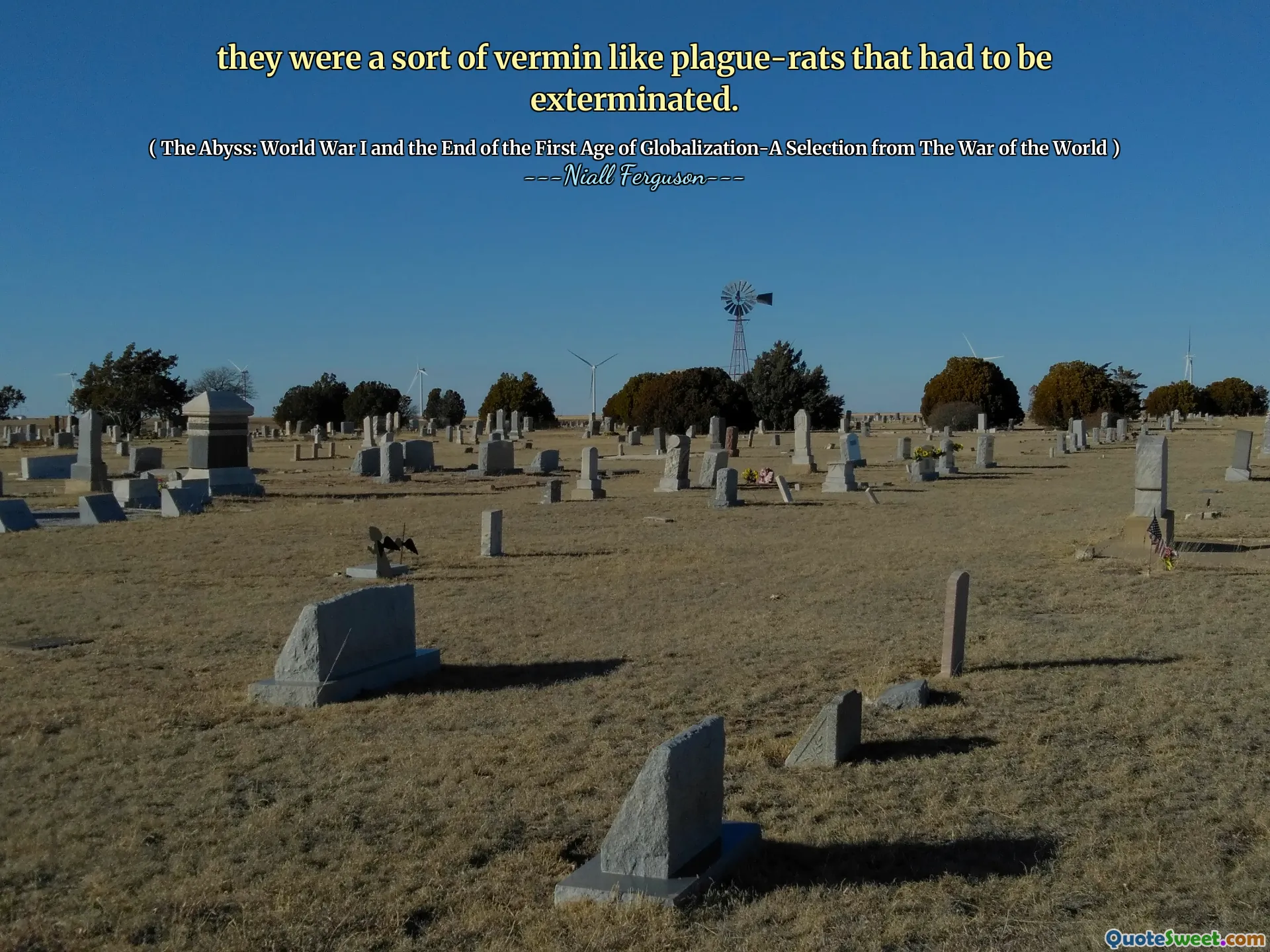
they were a sort of vermin like plague-rats that had to be exterminated.
Niall Ferguson's work, "The Abyss: World War I and the End of the First Age of Globalization," explores the significant global transformations brought about by World War I. The text reflects on how societies reacted to the war, highlighting the drastic measures taken against perceived threats. This is illustrated in the author’s striking characterization of certain groups as “vermin like plague-rats that had to be exterminated,” showcasing the dehumanizing attitudes that can arise during times of conflict.
This powerful metaphor encapsulates the intense animosity and desperation that the war engendered, leading communities to justify extreme actions against those they deemed dangerous. Ferguson's examination reveals how fear and desperation can distort moral boundaries, illustrating the dark side of human behavior during wartime. The language used highlights the profound psychological impact of the war and its lasting effects on global relations and identities.











